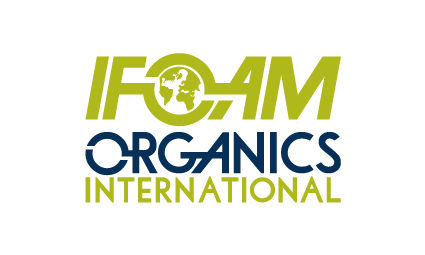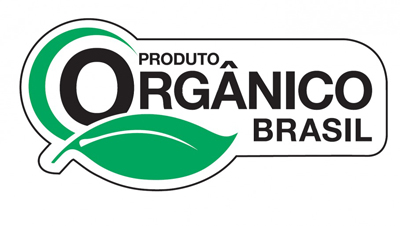WHAT IS ORGANIC LIVESTOCK?
Organic Livestock is the preventive system of raising animals (regulated by law) that follows the principles of what is called Organic Agriculture, considering technical, environmental, and social aspects. Organic systems look to ease the effects of agricultural interventions in agro-ecosystems in the medium and long run, preserving biodiversity, soil health, and water quality. It also excludes synthetic fertilizers, agrochemicals, veterinary drugs, irradiation, genetically modified seeds and animals. Through this, it proposes to improve living conditions, not only of rural producers, but of consumers as well, producing healthy foods, free of toxic residues and of better nutritional quality, aiming to generate local, regional, and global environmental benefits.
Organic livestock prioritizes animal welfare and ethical management; determines organic food supply and the use of mild therapeutics, such as homeopathy, phytotherapy, and acupuncture. The organic production system copies nature’s mechanisms, associating them with current scientific knowledge.
HISTORY
Some pioneers began to contest the industrial and chemical agricultural model in the beginning of the 20th century, suggesting a healthier way of producing foods by copying nature’s own models. The first initiatives occurred with recycled organic materials for soil fertilization. Organic agriculture owes its name to this, a term that has consecrated itself and is used to identify this methodology. Gradually, similar initiatives in various countries of Europe and also the USA came to develop methods imitating natural processes, dispensing and contesting the use of chemical fertilizers and pesticides.
With respect to animals, the repercussion of the book Animals Machine, launched in 1964 by the British woman Ruth Harrison, denouncing the confined animals’ terrible living conditions, led the British government to order a technical evaluation of these conditions. The study’s result became known as the Brambell Report. It was the first time that a scientific veterinary publication mentioned the word suffering, confirming the book’s denunciations. This report is considered to be the beginning of animal welfare scientific studies, which are being built on ever since. Currently, we know that the animals’ physical or psychological stress provokes reduced immunity and an increased occurrence of illness.
In this context, Organic Animal Husbandry develops by making use of the knowledge acquired by these new currents and meets society’s current demands: a food supply of nutritional quality, free of toxic residues; care for the environment; and ethical management of the animals, guaranteeing a healthy life of dignity.
Due to the large number of initiatives of organic plant and animal production in various countries, in 1972, IFOAM – International Federation of Organic Agriculture Movements was created, constituting until today the main world organization that leads, unites, and supports the organic movement in its ample diversity. Among its main activities, we can cite: establishing the organic marks that define Organic Agriculture, its principles, and reach; organizing organic production norms that serve as orientation for countries and governments to establish their laws; elaborating documents that describe the official position over a series of current controversial topics; holding the Organic World Congress every three years; training people and leaders and forming networks of action.
For IFOAM, “organic agriculture is much more than just a way to naturally treat the soil, plants, and animals. It is a holistic paradigm to sustain life on Earth, whose basis was placed by a group of pioneers with the courage and foresight to openly challenge industrialized agriculture already in the 1920s.”
According to IFOAM, the official definition is: “Organic Agriculture is a production system that sustains the health of soils, ecosystems and people. It relies on ecological processes, biodiversity and cycles adapted to local conditions, rather than the use of inputs with adverse effects. Organic Agriculture combines tradition, innovation and science to benefit the shared environment and promote fair relationships and a good quality of life for all involved.”
PRINCIPLES OF ORGANIC PRODUCTION (IFOAM, 2107)
These principles are the roots from which Organic Agriculture grows and develops. They express the contribution that Organic Agriculture can make to the world. Composed as inter-connected ethical principles to inspire the organic movement — in its full diversity, they guide our development of positions, programs and standards.
Principle of Health
Organic Agriculture should sustain and enhance the health of soil, plant, animal, human and planet as one and indivisible.
This principle points out that the health of individuals and communities cannot be separated from the health of ecosystems – healthy soils produce healthy crops that foster the health of animals and people. Health is the wholeness and integrity of living systems. It is not simply the absence of illness, but the maintenance of physical, mental, social and ecological well-being. Immunity, resilience and regeneration are key characteristics of health.
Principle of Ecology
Organic Agriculture should be based on living ecological systems and cycles, work with them, emulate them and help sustain them.
This principle roots organic agriculture within living ecological systems. It states that production is to be based on ecological processes, and recycling. Nourishment and well-being are achieved through the ecology of the specific production environment. For example, in the case of crops this is the living soil; for animals it is the farm ecosystem; for fish and marine organisms, the aquatic environment.
Principle of Fairness
Organic Agriculture should build on relationships that ensure fairness with regard to the common environment and life opportunities.
Fairness is characterized by equity, respect, justice and stewardship of the shared world, both among people and in their relations to other living beings. This principle emphasizes that those involved in organic agriculture should conduct human relationships in a manner that ensures fairness at all levels and to all parties – farmers, workers, processors, distributors, traders and consumers. Organic agriculture should provide everyone involved with a good quality of life, and contribute to food sovereignty and reduction of poverty. It aims to produce a sufficient supply of good quality food and other products. This principle insists that animals should be provided with the conditions and opportunities of life that accord with their physiology, natural behavior and well-being.
Principle of Care
Organic Agriculture should be managed in a precautionary and responsible manner to protect the health and well-being of current and future generations and the environment.
Organic agriculture is a living and dynamic system that responds to internal and external demands and conditions. Practitioners of organic agriculture can enhance efficiency and increase productivity, but this should not be at the risk ofjeopardizing health and well-being. Consequently, new technologies need to be assessed and existing methods reviewed. Given the incomplete understanding of ecosystems and agriculture, care must be taken.
More information: http://www.ifoam.bio/sites/default/files/poa_english_web.pdf



